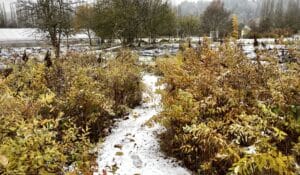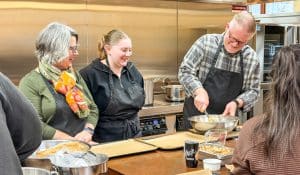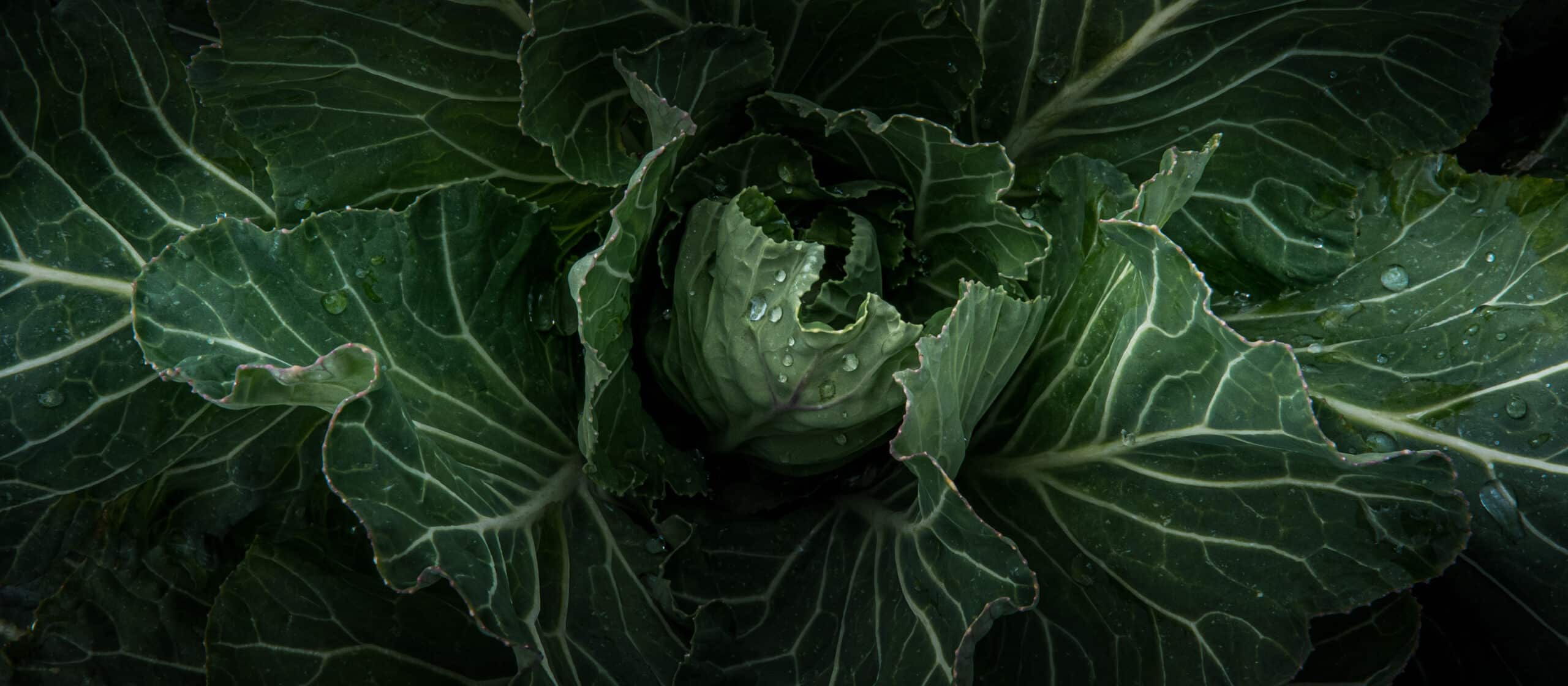
Celebrating Local Women in Farming
Celebrating Local Women in Farming
- posted on: March 30, 2021
- posted by: Rebecca Jordan
"*" indicates required fields

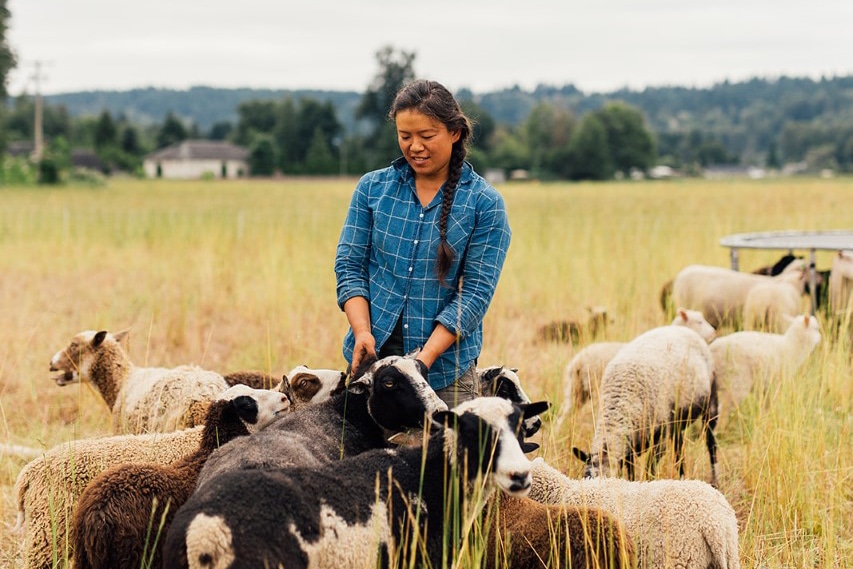
21/21 Vision: Celebrating Local Women in Farming
This article was written by Mary King, Farm Market Team Member.
March is Women’s History Month, a time to learn about and reflect on the women who have shaped society, especially those whose contributions have been overlooked or credited to men. Agriculture is one area that is burgeoning with such stories.
Women have worked in sourcing food for millennia, of course, but in recorded history they have generally been relegated to the roles of field labor or the (male) farmer’s helpmeet. When World War II called away as many as six million of America’s male farm workers, they were largely replaced by wives and daughters, as well as many women who had no farm experience.
When men reclaimed their positions after the war, most women resumed their traditional supportive roles. Loans and land were hard to come by until the women’s movement of the late 20th century broke down some barriers. Now women own over half the farmland in the US, but earn about half as much as male farmers. Federal farm programs still favor large farms (mostly run by men). Women of color face compounded discrimination.
Audra Mulkern is the founder, writer, and photographer of The Female Farmer Project, which she hopes will address the missing half of the story of America’s agricultural history through photography, podcast, and a feature film. The good news is that women, especially women of color, taking on increased leadership in agriculture results in more sustainable stewardship and food access equity. “When women, people of colour, and indigenous folks are given opportunities to be in decision-making roles that they haven’t been given historically, we know that people bring very different priorities, life experiences, principles and even different perceptions to risk,” says Professor Jennie Stephens, director of the School of Public Policy & Urban Affairs at Northeastern University in Boston. “So having diversity in decision-making ensures that we can better balance these different risks.”
Some favorite local women farmers
The 21 Acres Farm Market is proud to work with many women-owned and operated businesses in the Sammamish Valley and beyond in climate education, climate resilience, and plain great food. We feature fresh produce, dairy, and meat from local sustainable farms, and we’d like to introduce a few of the women leading these endeavors.
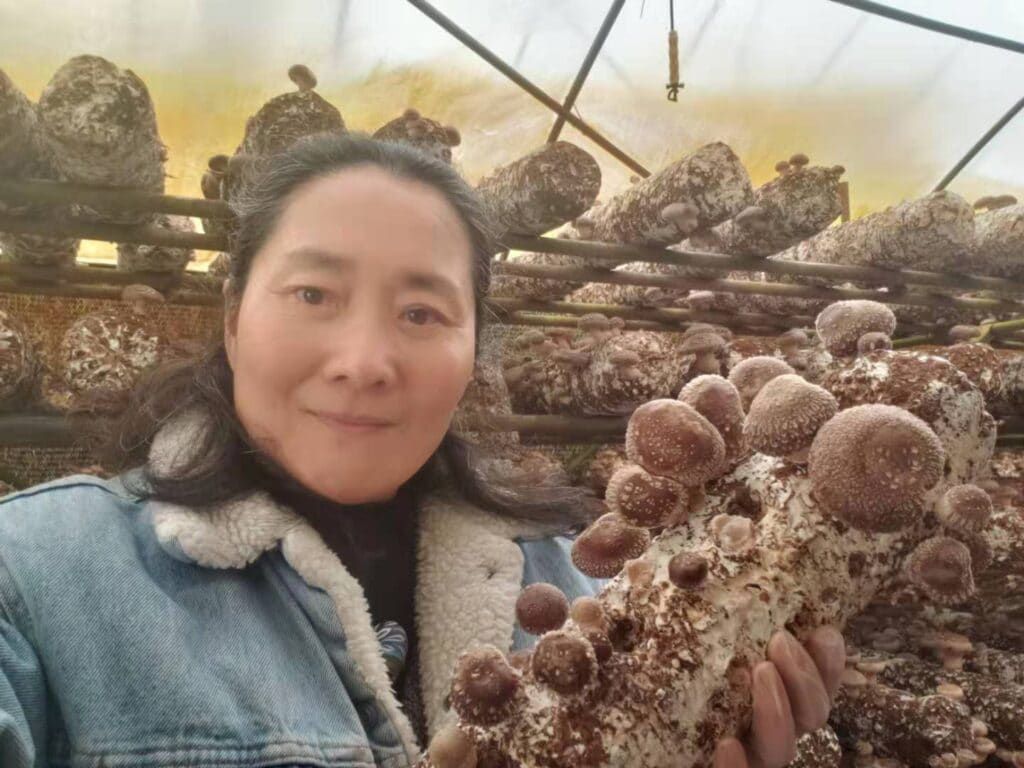
Dog Island Mushrooms, Qi Lou, co-founder. Qi and her husband Bret cultivate mushrooms on Guemes Island, and supply top restaurants with their shiitakes and oyster mushrooms, as well as selling mushroom-inoculated logs direct to farmers’ market shoppers.
Faithbeyond Farm, Elizabeth Mugeche, co-owner. Elizabeth and her partner Francis Ndishu immigrated from Kenya and have been growing mixed vegetables (including the popular Makah Ozette potatoes) in Kent and most recently in the Skagit Valley.
Local Color Farm and Fiber, Emily Tzeng, co-owner. Along with co-owner Brian Love, Emily grows flowers, food, and sheep in the Puyallup River Valley. Her yarns are dyed using flowers and vegetables.
Sariwa Farm, Lorna Velasco, owner. Sariwa means “fresh” in Tagalog, describing the selection of Filipino produce Lorna Velasco grows on her half-acre Woodinville farm.
Songbird Haven Farm, Noa Kay, co-owner. Along with co-owner Mark Albonizio, they have year-round produce and a delicious seasonal CSA. Noa has also done climate organizing through Carbon WA in the past and helped to get the Sustainable Farms & Fields Bill passed in Washington state.
Sweet Hollow Farm, Caitlin Ehlers, co-owner. Caitlin grows vegetables and herbs in Woodinville. Alongside co-owner Vero Vergara, Caitlin grows a seasonal CSA and hopes that Sweet Hollow can be a force for liberation by building an economy and food system that truly belongs to everyone.
Hand-Grown Greens, Laura Patterson, owner. Laura left her career as a nurse to grow food for optimum health, and sprouted seeds became her specialty. She sells microgreen kits as well as packaged pea shoots and sunflower shoots.
Tualco Valley Farm, Rosario Hernandez, owner. Rosario is the head of this multi-generational family farm in the Tualco Valley near the Skykomish River, producing a variety of vegetables for their farmstand and market outlets.
Shopping locally and supporting small sustainable farms is one of the best ways to contribute to both climate recovery and social equity. Today more than ever, women hold down half the ground, and we are richer for it.
About Mary King
Mary King is a member of the Farm Market team. She was raised in the Midwest but has lived in Washington for over 30 years, including 20 in Woodinville. She has enjoyed volunteering in many interest areas in which education has played a role: as a WSU Master Gardener, teaching middle school students to grow vegetables; as an adoption counselor for cat shelters; as a writer for a charitable craft enterprise; and as a WSU certified Sustainable Community Steward. An avid foodie and thrifty living enthusiast, Mary loves finding ways to “use it up and make it do” in the kitchen, garden, and home. Zero waste has been her lifelong niche, so she’s no stranger to mending clothes, stretching food, and rescuing the abandoned but still useful item.










 back to blog overview
back to blog overview


